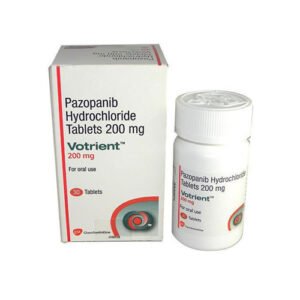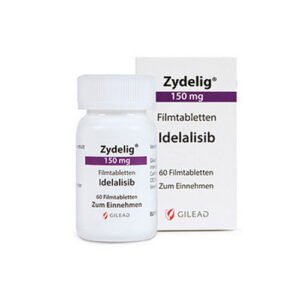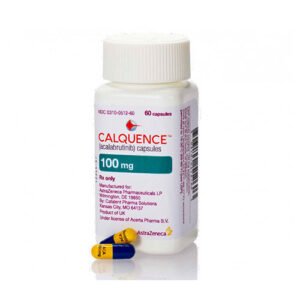Description
What Keytruda is?
KEYTRUDA is a programmed death receptor-1 (PD-1)-blocking antibody indicated:
Skin cancer called melanoma, Lung cancer called non–small cell lung cancer (NSCLC), Head and neck squamous cell cancer (HNSCC), classical Hodgkin lymphoma (cHL). Bladder and urinary tract cancer called urothelial carcinoma, Laboratory test to be a microsatellite instability-high (MSI-H) or a mismatch repair deficient (dMMR) solid tumor, Stomach cancer called gastric or gastroesophageal junction (GEJ), squamous cell carcinoma of the esophagus, Cervical cancer, Liver cancer, Skin cancer, Kidney cancer.
What pembrolizumab is?
Pembrolizumab (formerly lambrolizumab, brand name Keytruda) is a humanized antibody used in cancer immunotherapy. This includes to treat melanoma, lung cancer, head and neck cancer, Hodgkin lymphoma, and stomach cancer. It is given by slow injection into a vein.
As of 2019, pembrolizumab is used via intravenous infusion to treat inoperable or metastatic melanoma, metastatic non-small cell lung cancer (NSCLC) in certain situations, as a first-line treatment for metastatic bladder cancer in patients who can’t receive cisplatin-based chemotherapy and have high levels of PD-L1, as a second-line treatment for head and neck squamous cell carcinoma (HNSCC), after platinum-based chemotherapy, for the treatment of adult and pediatric patients with refractory classic Hodgkin’s lymphoma (cHL), and recurrent locally advanced or metastatic esophageal squamous cell carcinoma.
In 2017, the U.S. Food and Drug Administration (FDA) approved pembrolizumab for any unresectable or metastatic solid tumor with certain genetic anomalies (mismatch repair deficiency or microsatellite instability). This was the first time the FDA approved a cancer drug based on tumor genetics rather than tissue type or tumor site;[medical citation needed] therefore, pembrolizumab is a so-called tissue-agnostic drug.
KEYTRUDA® (pembrolizumab) injection, for intravenous use Initial U.S. Approval: 2014
See full prescribing information : Click Here
Need Help Getting Medicine? Here’s How We Can Assist You.
Brand Name “KEYTRUDA” or Generic Name “pembrolizumab” can be imported for personal use under “Named Patient Program” treatment in Delhi, Kolkata, Surat, Jaipur, Noida, Gurgaon (Gurugram), Punjab, Chandigarh, Bhubaneswar, Arunachal Pradesh, Assam, Manipur, Meghalaya, Mizoram, Nagaland, Tripura and Sikkim, Noida, Kanpur, Lucknow, Dehradun, Shimla, Ahmedabad, Jodhpur, Mumbai, Jaipur, Aurangabad, Pune, Bangalore, Hyderabad, Chennai, Visakhapatnam, Coimbatore, Andhra Pradesh, Karnataka, Kerala, Lakshadweep, Puducherry, Tamil Nadu, Telangana, India. Contact us at support@southdelhipharma.net, southdelhipharma@gmail.com or you can call at 9891296838 or WhatsApp at 9891296838






